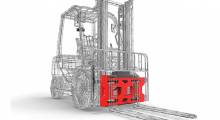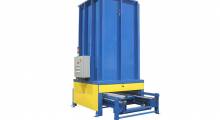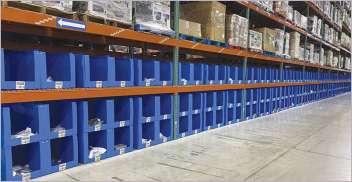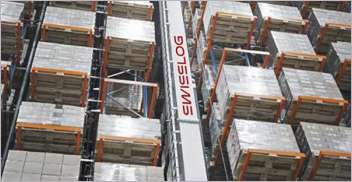In case it snuck up on you, Earth Day this year is April 22. Now, I’m old enough to remember the first Earth Day in 1970. I was a junior in high school.
And whether it’s the passage of time or nostalgia, I remember that first Earth Day as an upbeat, positive event. Not one filled with the acrimony and crisis of so many environmental discussions today.
By way of example, EarthDay.org, organizer of Earth Day, says this year’s theme is “Planet vs. Plastics.” The group calls for a 60% elimination of plastic production by 2040, “and an ultimate goal of building a plastic-free future for generations to come.”
This has gotten to the point that there’s a book out recently trying to be a counterweight to the certainty of environmental catastrophe. Perhaps the best summary of “Not the End of the World” is the phrase: Things to stress less about.
We’ll work with that here following a recent discussion with Ben Remmey and Jimmy Chen. Remmey is president of Remmey – The Pallet Company. Chen is an associate professor of analytics and operations management at Bucknell University.
While the sponsor of Earth Day may be focused on reducing plastics overall, a more reasoned approach for this column is to focus on optimizing the supply chain. And that’s exactly what Remmey and Chen are doing.
Remmey, a wood pallet manufacturer, is an occasional guest lecturer at Chen’s supply chain classes. And the two have written a paper about the underestimated advantages of wooden pallets. It says in part:
“The growing awareness of environmental sustainability leads some to label wood pallets as less eco-friendly due to their shorter service life and the need to cut down trees compared to their plastic counterparts. In fact, wood and plastic pallets have their respective advantages and disadvantages, varying depending on their applications.”
That last sentence does a lot to bring the wood vs. plastic pallet discussion into balance. Which is important considering there are 1.8 billion pallets in circulation in the United States, transporting 93% of all products. By the way, 90% of those pallets are wood.
And while fully in the wood pallet camp, Remmey’s message to Chen’s students is to look at the full supply chain. He advocates for optimization of moving and handling goods from end to end.
“We have to be stewards of the environment. It’s not just a matter of building the right pallets for specific loads. It’s also a matter of proper disposal of those pallets, whether they’re used once or 15 times,” says Remmey.
Chen is also on board with that bigger picture approach. He advocates for what he calls the financial sustainability of pallets.
“Wood pallets, despite a shorter lifespan, are initially cheaper and incur lower maintenance costs. On the other hand, more durable plastic pallets may cost less in the long run if carefully managed, justifying their higher upfront cost. A financially responsible choice hinges on budget, usage frequency and the pallets’ expected travel locations,” - Chen
So, there you have it. A look at pallets from the supply chain down, not from the stringer up. Hope you enjoy Earth Day and all its positive vibes.
Article topics










